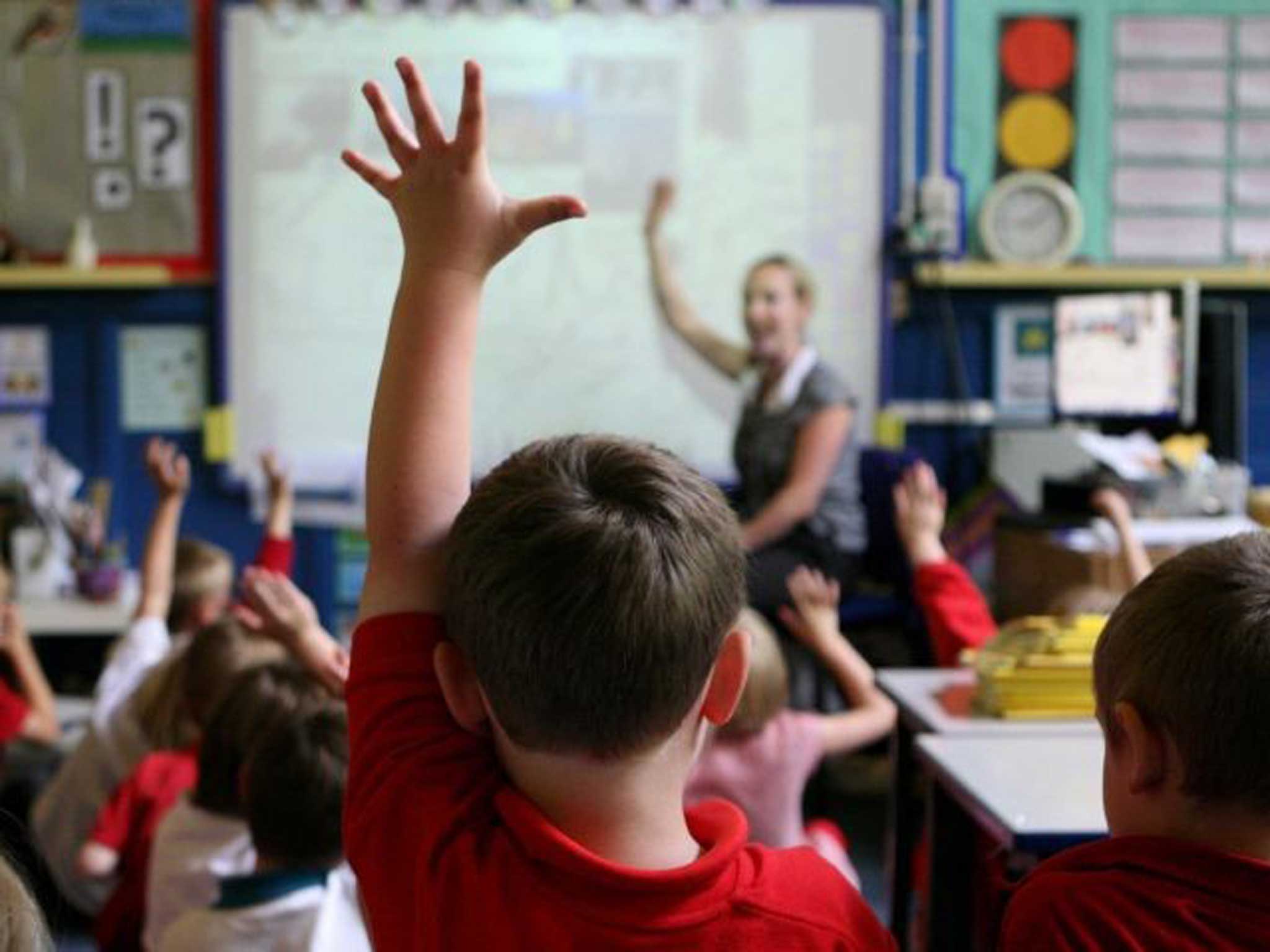Primary school places appeals: Parents are faced with 'meaningless' process, warns Labour
With three days to go until the first national 'offer day', parents are anxious and councils scramble to create new classrooms

Thousands of parents will miss out on their first choice of primary school this week, with families in the worst affected areas facing a "virtually meaningless" appeals process. Parents will not know whether their four-year-olds will be go to their preferred school until Wednesday, when 600,000 children will be allocated their primary school places.
This is the first time the Government has used a single offer day for primary schools; the Department for Education (DfE) has introduced this to simplify the application process for parents. This week's date has been chosen specifically to give enough time to parents who want to appeal.
Parents who are unhappy with their allocated school can make an appeal to the admission authority, though the timing of the Easter holidays could delay the process for some families.
But for parents living in big cities, such as London or Birmingham, the appeal process will be of little value because of the shortage of school places, according to Labour MP Steve McCabe.
Mr McCabe, a shadow Education spokesman, claims that in major cities "people are almost certainly not going to get their first preference – they will be lucky to get a second or third", adding that "the appeals system is virtually meaningless when you've got a shortage of places on this scale".
He said that there are 40 local authorities across the country that have "more pupils than places", drawing on Labour's own research, which claims that, out of the 131 local authorities that responded to Freedom of Information requests, 32 thought their government funding for additional primary places was not enough to meet the expected demand for the 2015-2016 school year.
The National Audit Office last year stressed the need for the Government to increase funding to grow school capacity when it reported that there would be 240,000 new school places needed in primary schools alone this autumn – 37 per cent of which are in London. It added that the number of infant classes of more than 31 children had doubled since 2007.
Experts say the shortfall is down to a surge in birth rates over the past decade – the biggest since the 1950s – with numbers poised to rise.
The Government is adamant that every child will have a place, as local authorities have a statutory duty to ensure children in their jurisdictions have a school place.
The DfE has "more than doubled to £5bn the funding available to local authorities to create new school places", a spokesman said. "This funding has already led to the creation of 260,000 new school places, all of which are in areas where there is a shortage of places. Our investment in the free schools programme is also seeing seven out of 10 new places created in areas of basic need."
Concern is mounting among local authorities, however, with councillors in Redbridge, Surrey, calling for an increase in investment amid reports that local primary schools are oversubscribed; Churchfields Primary School in South Woodford has 485 students, although its official capacity is 392.
In Croydon, the council has estimated that, if the demand for primary school places hits the highest possible level, it will need an extra 2,500 places by 2016.
But the growing reality for most parents is that they simply "don't have a choice" of primary school for their children, according to the NASUWT teachers union. The general secretary of the union, Chris Keates, said: "Parents usually opt for a local neighbourhood school because, for many families, transporting young children miles to school is neither desirable or, in many cases, affordable or practical."
She claimed the Government's focus on competition and a displacement of funding is now placing parents at a disadvantage in two ways. "Firstly, the coalition Government's obsessive focus on competition between schools enabling parents who do have the time and money to take their children to schools outside their neighbourhood, is displacing local children," she said.
"Secondly, the coalition's failure to support local authorities in proper place planning to meet the rising numbers of primary school age children in local areas, diverting money instead to funding new free schools set up in places whether often they are neither wanted or needed," she added.
It is not only the parents of eager children that are facing a crisis of choice, however. The Local Government Authority (LGA) claims that some primary schools have resorted to turning libraries and music rooms into classrooms, reducing playground space, or expanding classes beyond the statutory limit of 30 children, in a bid to meet growing demand for places.
Councils across the country are now being forced to become innovative with the space they have on offer, too.
Brighton and Hove council is converting a former police station into a junior school, and in East Dulwich, south London, another former police station will undergo a similar makeover – the site has been bought for a new primary school to be ready in September 2015.
Subscribe to Independent Premium to bookmark this article
Want to bookmark your favourite articles and stories to read or reference later? Start your Independent Premium subscription today.

Join our commenting forum
Join thought-provoking conversations, follow other Independent readers and see their replies